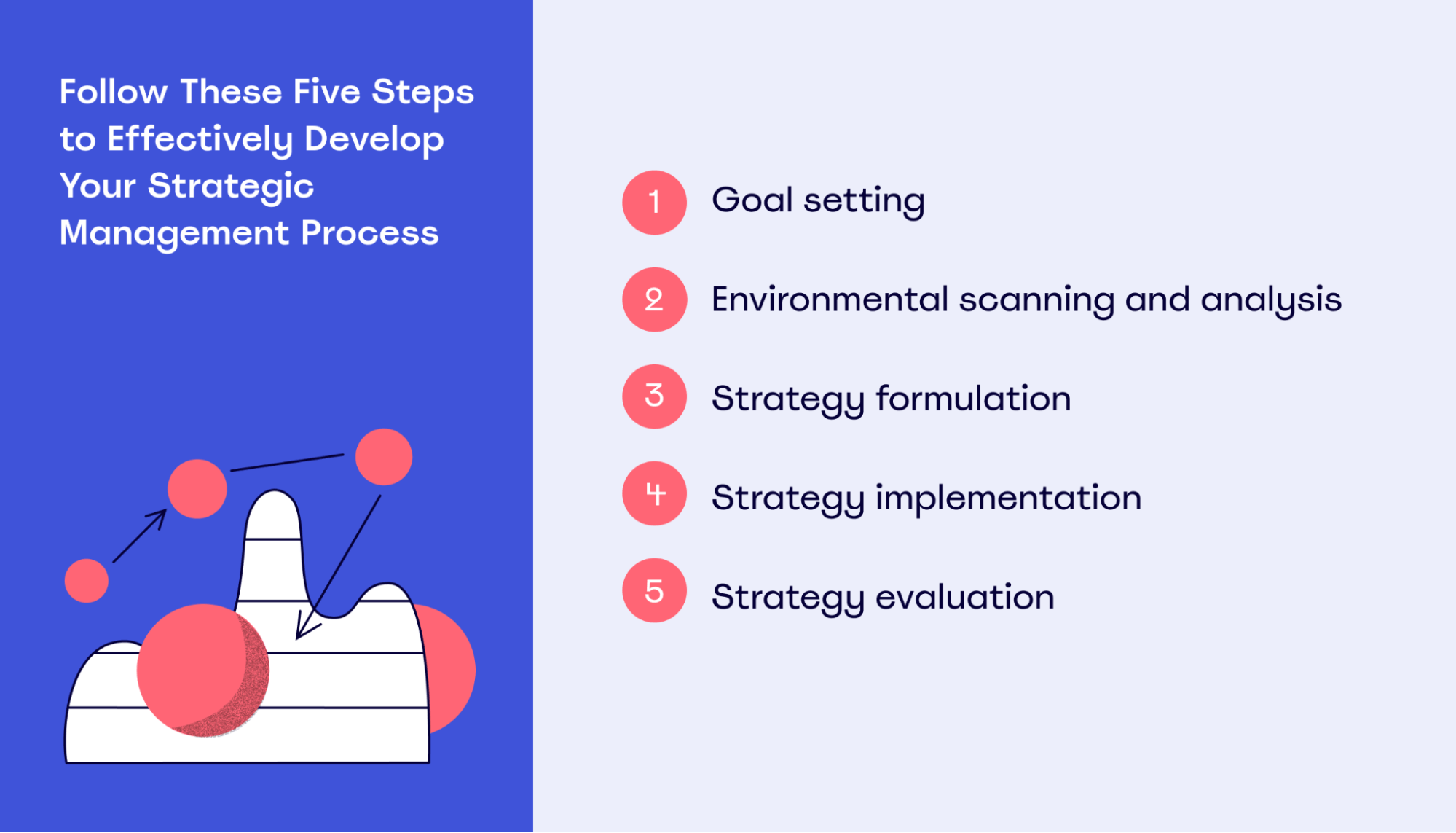To scale your business with strategic leadership, prioritize effective communication and empower your team to make decisions based on the company’s vision and goals. By fostering a culture of collaboration and continuous improvement, you can align your team’s efforts toward achieving long-term success.
Strategic leadership plays a crucial role in the growth and scalability of a business. It involves taking a proactive approach to guide and inspire your team towards achieving the company’s objectives. By strategically leading your organization, you can navigate through challenges, adapt to changes in the market, and seize opportunities for expansion.
This blog post will explore key strategies to scale your business with strategic leadership, focusing on effective communication, empowering your team, and creating a culture of collaboration. By implementing these approaches, you can drive your business towards sustainable growth and unlock its full potential. So, let’s dive in and discover how strategic leadership can propel your business to new heights.
Introduction To Scaling And Strategic Leadership
Scale your business effectively with strategic leadership. Learn how to navigate growth, make informed decisions, and inspire your team to achieve long-term success. Discover the power of scaling and strategic leadership in taking your business to new heights.
Scaling a business is a critical step towards achieving long-term success. It involves expanding operations, diversifying products/services, and increasing customer reach. However, scaling without proper planning and execution can lead to failure. This is where strategic leadership comes in. Strategic leadership is about creating a vision, setting goals, and aligning resources to achieve sustainable growth. In this blog post, we will explore the importance of scaling and the role of leadership in growth.
The Importance Of Scaling
Scaling is essential for businesses that want to remain competitive and relevant in their respective industries. Without scaling, a business may struggle to keep up with changing market conditions, customer needs, and technological advancements. Scaling enables a business to:
- Reach new markets and customers
- Diversify revenue streams
- Improve operational efficiency
- Increase profitability
However, scaling also comes with risks such as increased expenses, operational complexities, and management challenges. Therefore, scaling must be done strategically, with careful planning and execution.
The Role Of Leadership In Growth
Leadership plays a critical role in scaling a business. A strategic leader provides direction, motivation, and guidance to the team. They create a culture of innovation, accountability, and continuous improvement. A strategic leader:
- Identifies growth opportunities
- Develops a growth strategy
- Aligns resources to achieve growth
- Monitors progress and adjusts course as needed
Effective leadership is essential for scaling to be successful. Without strong leadership, scaling can lead to chaos, confusion, and ultimately, failure. Therefore, businesses must invest in developing and nurturing leadership skills at all levels.
In conclusion, scaling is critical for businesses that want to achieve long-term success. However, scaling must be done strategically, with careful planning and execution. Effective leadership is essential for scaling to be successful. By creating a culture of innovation, accountability, and continuous improvement, businesses can achieve sustainable growth and remain competitive in their respective industries.

Credit: miro.com
Identifying The Right Time To Scale
Growth Indicators
When considering scaling your business, it’s crucial to pay attention to key growth indicators. These indicators could include a steady increase in customer demand, a growing market, or a rise in revenue and profits. By monitoring these indicators, you can gain valuable insights into the readiness of your business to expand.
Assessing Business Readiness
Assessing your business’s readiness involves evaluating various aspects of your operations. This includes the stability of your current processes, the strength of your team, and the capacity of your infrastructure to handle growth. By conducting a thorough assessment, you can determine if your business is equipped to handle the challenges that come with scaling.
Building A Scalable Business Model
When it comes to scaling your business, having a solid and scalable business model is crucial. A scalable business model allows you to efficiently grow your operations, increase revenue, and adapt to changing market conditions. In this article, we will explore the key components of a scalable model and discuss how to adjust your model for expansion.
Key Components Of A Scalable Model
A scalable business model consists of several key components that work together to drive growth and maximize efficiency. These components include:
- Clear Value Proposition: Your business must clearly define the value it offers to customers. This value proposition should address a specific customer pain point and differentiate your business from competitors.
- Efficient Processes: Streamlining your processes is essential for scalability. Identify areas where you can automate or eliminate manual tasks to increase efficiency and reduce costs.
- Scalable Infrastructure: Your business infrastructure, including technology systems, should be able to handle increased demand without significant disruptions or bottlenecks.
- Talent and Team: Building a talented and motivated team is crucial for scaling your business. Hire individuals who align with your company’s values and have the skills and mindset to contribute to growth.
- Strong Customer Relationships: Developing and maintaining strong relationships with your customers is essential for long-term success. Focus on providing exceptional customer service and continuously gathering feedback to improve your offerings.
- Flexible Revenue Streams: Diversify your revenue streams to reduce dependency on a single product or service. Explore opportunities for recurring revenue, upselling, cross-selling, or expanding into new markets.
Adjusting Your Model For Expansion
As your business expands, it is important to adjust your scalable model to accommodate growth. Here are some strategies to consider:
- Market Research: Continuously monitor market trends and customer needs to identify new growth opportunities. Conduct market research to understand customer preferences and adapt your model accordingly.
- Invest in Technology: Leverage technology to automate processes, improve communication, and enhance customer experience. Implement scalable software solutions that can handle increased demand and improve operational efficiency.
- Optimize Supply Chain: Review your supply chain to ensure it can support increased production and distribution. Identify areas for optimization, such as inventory management, supplier relationships, and logistics.
- Expand Marketing Efforts: Increase your marketing efforts to reach a wider audience and attract new customers. Utilize digital marketing strategies, such as social media advertising and search engine optimization, to expand your reach and increase brand awareness.
- Monitor Key Metrics: Continuously monitor key performance indicators (KPIs) to track the effectiveness of your scalable model. Measure metrics such as customer acquisition cost, customer lifetime value, and revenue growth to ensure your model is driving desired outcomes.
By focusing on these key components and adjusting your model for expansion, you can effectively scale your business and achieve sustainable growth. Remember, scalability requires a proactive and strategic approach that aligns with your long-term goals.
Strategic Leadership For Effective Scaling
Strategic Leadership for Effective Scaling is paramount for the growth and success of any business. By implementing strategic leadership principles, organizations can navigate challenges, seize opportunities, and achieve sustainable growth.
Traits Of Strategic Leaders
Strategic leaders possess key traits such as adaptability, vision, and decisiveness. They inspire teams, foster innovation, and drive results through strategic planning.
Developing A Leadership Mindset
Developing a leadership mindset involves continuous learning, self-awareness, and the ability to inspire and empower others. By cultivating a growth mindset, leaders can adapt to changing environments and lead their teams to success.
Cultivating A Strong Company Culture
Cultivating a strong company culture is essential for scaling your business with strategic leadership. By fostering a positive work environment, encouraging open communication, and promoting teamwork, you can create a culture that supports growth and innovation. Effective leadership plays a crucial role in setting the tone and guiding the organization toward its goals.
Culture’s Impact On Scaling
A strong company culture is vital for scaling a business successfully. A positive culture attracts the best talent, fosters employee engagement and retention, and creates a productive work environment. It also lays the foundation for a strong brand identity and customer loyalty. Conversely, a negative culture can lead to high turnover rates, low employee morale, and a poor reputation, hindering growth.
Fostering Alignment And Engagement
To cultivate a strong culture, leaders must foster alignment and engagement among employees. This involves ensuring that everyone understands and shares the company’s mission, vision, and values. Leaders should also encourage open communication, transparency, and collaboration, creating a sense of community and belonging. Regular feedback and recognition can also boost employee morale and motivation, driving growth.
Cultivating a strong company culture is critical for scaling a business. By understanding the impact of culture on growth, leaders can foster alignment and engagement among employees, creating a positive work environment that attracts top talent and drives productivity. By prioritizing culture, businesses can create a strong brand identity and loyal customer base, paving the way for long-term success.

Credit: www.ccl.org
Investing In People And Talent Development
Investing in People and Talent Development is crucial for the sustainable growth and scalability of any business. A strategic approach to leadership involves nurturing and developing the skills and capabilities of your workforce.
Hiring For Scalability
Strategic leadership involves hiring individuals who not only fit the current needs of the organization but also possess the potential to grow and take on additional responsibilities as the business expands. Identifying candidates with adaptable skill sets and a willingness to learn is essential for building a team that can support the long-term goals of the company.
Training Programs And Leadership Development
Implementing comprehensive training programs is essential for equipping employees with the skills and knowledge needed to adapt to the changing demands of a growing business. Investing in leadership development initiatives ensures that future leaders are being groomed from within the organization, fostering a sense of loyalty and commitment among employees.
Financial Strategies For Growth
Financial Strategies for Growth are crucial for scaling your business effectively. Among these strategies, Funding Options for Expansion and Financial Planning and Analysis play key roles.
Funding Options For Expansion
When considering expansion, businesses can opt for various funding sources:
- Equity financing
- Debt financing
- Venture capital
Financial Planning And Analysis
Proper financial planning is essential for sustainable growth. This includes:
- Budgeting
- Forecasting
- Financial reporting
Innovation And Adaptability
Innovation and Adaptability:
Being innovative and adaptable are key factors in scaling your business successfully. To grow and stay competitive, businesses must embrace change and foster creativity within their teams.
Staying Ahead Of Market Trends
By constantly monitoring market trends, businesses can anticipate shifts and proactively adjust their strategies.
- Regularly analyze industry reports and data
- Attend conferences and networking events
Encouraging Innovation Within The Team
Fostering a culture of innovation empowers employees to generate fresh ideas and drive growth.
- Provide resources for brainstorming sessions
- Reward creative thinking and risk-taking
Technology Integration For Scaling
Strategic leadership is crucial for scaling a business, but technology integration is also essential. By adopting the right technology and implementing it effectively, businesses can streamline their processes, improve communication and collaboration, and ultimately achieve sustainable growth.
Leveraging Tech For Efficiency
Implementing technology tools can streamline operations for business growth.
Automation And Its Role In Scaling
Automation is crucial for scaling as it enhances productivity and consistency.
Global Expansion And Scaling
Global Expansion and Scaling are crucial for businesses looking to reach new heights. To achieve this, understanding international markets and mastering cross-cultural management are key components.
Understanding International Markets
Research target markets thoroughly before expanding overseas. Analyze competition, demand, and regulations.
Cross-cultural Management
Respect cultural differences when managing global teams. Foster open communication and encourage diversity.
Measuring Success And Impact
Measuring the success and impact of your business’s strategic leadership is crucial for continued growth and development. It allows you to assess the effectiveness of your leadership strategies and make data-driven decisions to further scale your business. By utilizing key performance indicators (KPIs) and embracing a culture of continuous improvement and scaling, you can effectively measure the success and impact of your strategic leadership.
Key Performance Indicators (kpis)
Implementing key performance indicators (KPIs) provides a clear framework for evaluating the success of your business’s strategic leadership. These measurable values reflect the critical areas of performance that are essential for the growth and sustainability of your business. By tracking KPIs related to financial performance, customer satisfaction, operational efficiency, and employee engagement, you can gain valuable insights into the effectiveness of your leadership strategies.
Continuous Improvement And Scaling
Embracing a culture of continuous improvement and scaling is essential for ensuring the long-term success of your business. By consistently seeking opportunities for improvement, adapting to market changes, and scaling your operations to meet growing demands, you can effectively measure the impact of your strategic leadership. This approach fosters agility and innovation, enabling your business to thrive in dynamic and competitive environments.
Navigating Challenges In Scaling
To scale your business with strategic leadership, it’s essential to navigate challenges effectively. Implementing a clear vision, fostering innovation, and empowering your team are crucial steps. By embracing change and staying agile, you can overcome obstacles and drive sustainable growth.
Scaling a business can be a challenging task, especially when it comes to overcoming obstacles. As a business leader, it’s essential to have a strategic plan in place to navigate these challenges and ensure your business grows successfully. In this post, we’ll discuss some common scaling pitfalls and strategies for overcoming them.
Common Scaling Pitfalls
When it comes to scaling a business, there are some common pitfalls that many entrepreneurs face. These include:
- Lack of clear direction: Without a clear direction or plan, it’s easy to get sidetracked and lose sight of your goals.
- Insufficient funding: Scaling a business requires significant investments, and without adequate funding, it can be challenging to grow.
- Difficulty in finding talent: As your business grows, finding the right talent can become increasingly difficult, making it challenging to scale effectively.
- Inadequate infrastructure: Scaling a business requires robust infrastructure to support growth, and without it, your business may struggle to keep up with demand.
Strategies For Overcoming Obstacles
Overcoming these scaling obstacles requires a strategic approach. Here are some strategies to consider:
- Create a clear plan: Develop a clear plan with specific goals and milestones to help keep you focused and on track.
- Secure funding: Explore different funding options, such as loans, grants, or investors, to ensure you have the necessary resources to scale effectively.
- Focus on talent acquisition: Invest in building a strong talent acquisition strategy to attract and retain top talent.
- Invest in infrastructure: Ensure your business has the necessary infrastructure to support growth, such as scalable technology and efficient processes.
By implementing these strategies and staying focused on your goals, you can navigate the challenges of scaling and take your business to the next level.
Conclusion: Sustaining Growth With Strategic Leadership
Scale your business with strategic leadership to sustain growth. By implementing effective leadership strategies, you can navigate the challenges of expansion and drive success. Embrace proactive decision-making, inspire your team, and adapt to changing market conditions for long-term scalability.
Recap Of Scaling Tactics
As your business grows, adapt scaling tactics accordingly.
- Focus on customer needs.
- Streamline operations for efficiency.
- Empower employees for innovation.
The Long-term Vision For Strategic Growth
Develop a clear vision to guide long-term growth.
- Set specific, achievable goals.
- Invest in continuous learning and development.
- Embrace change for sustainable progress.

Credit: www.linkedin.com
Frequently Asked Questions
How Do You Implement Strategic Leadership?
To implement strategic leadership, follow these steps: 1. Clearly define the organization’s vision and goals. 2. Develop and communicate a strategic plan to guide decision-making. 3. Foster a culture of innovation and collaboration. 4. Empower and support employees to take ownership of their roles.
5. Continuously monitor and adjust strategies based on market trends and feedback.
How Do You Scale Up Your Business?
To scale up your business, focus on these key steps:1. Identify new growth opportunities and target markets. 2. Develop a comprehensive marketing strategy to reach a wider audience. 3. Streamline operations and improve efficiency to handle increased demand. 4.
Hire and train a skilled team to support growth and expansion. 5. Secure additional funding or investment to fuel business growth.
How Do You Scale Your Leadership?
To scale your leadership, focus on continuous learning and development. Seek feedback from others, build strong relationships, and delegate tasks effectively. Embrace change, stay adaptable, and encourage collaboration within your team. Foster a positive and inclusive work environment to empower your team members.
Why Is Strategic Leadership Important In A Business?
Strategic leadership is crucial in business for setting direction, aligning resources, and inspiring teams. It fosters innovation, adaptability, and long-term success. Effective strategic leadership drives growth navigates challenges, and maximizes opportunities, positioning the business for sustainable competitive advantage.
Conclusion
Strategic leadership plays a vital role in the growth and success of any business. By implementing effective strategies, leaders can navigate through challenges, drive innovation, and capitalize on opportunities. Through clear vision, strong decision-making, and effective communication, businesses can scale and thrive in today’s competitive landscape.
So, embrace strategic leadership as a core element of your business, and watch it flourish.






